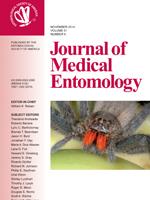Superinfection exclusion is generally defined as a phenomenon in which a pre-existing viral infection prevents a secondary viral infection; this has also been observed in infections with mosquito-borne viruses. In this study, we examined the superinfection exclusion of the vertebrate-infecting flaviviruses, Japanese encephalitis virus (JEV) and dengue virus (DENV), by stable and persistent infection with an insect-specific flavivirus, Culex flavivirus (CxFV), in a Culex tritaeniorhynchus Giles cell line (CTR cells). Our experimental system was designed based on the premise that wild Cx. tritaeniorhynchus mosquitoes naturally infected with CxFV are superinfected with JEV by feeding on JEV-infected animals. As a result, we found no evidence of the superinfection exclusion of both JEV and DENV by pre-existing CxFV infection at the cellular level. However, JEV superinfection induced severe cytopathic effects on persistently CxFV-infected CTR cells. These observations imply the possibility that JEV superinfection in CxFV-infected Cx. tritaeniorhynchus mosquitoes has an adverse effect on their fitness.
How to translate text using browser tools
1 March 2015
Analysis of Mosquito-Borne Flavivirus Superinfection in Culex tritaeniorhynchus (Diptera: Culicidae) Cells Persistently Infected with Culex Flavivirus (Flaviviridae)
Ryusei Kuwata,
Haruhiko Isawa,
Keita Hoshino,
Toshinori Sasaki,
Mutsuo Kobayashi,
Ken Maeda,
Kyoko Sawabe
ACCESS THE FULL ARTICLE
It is not available for individual sale.
This article is only available to subscribers.
It is not available for individual sale.
It is not available for individual sale.

Journal of Medical Entomology
Vol. 52 • No. 2
March 2015
Vol. 52 • No. 2
March 2015
Culex flavivirus
Culex tritaeniorhynchus
dengue virus
Japanese encephalitis virus
superinfection exclusion




